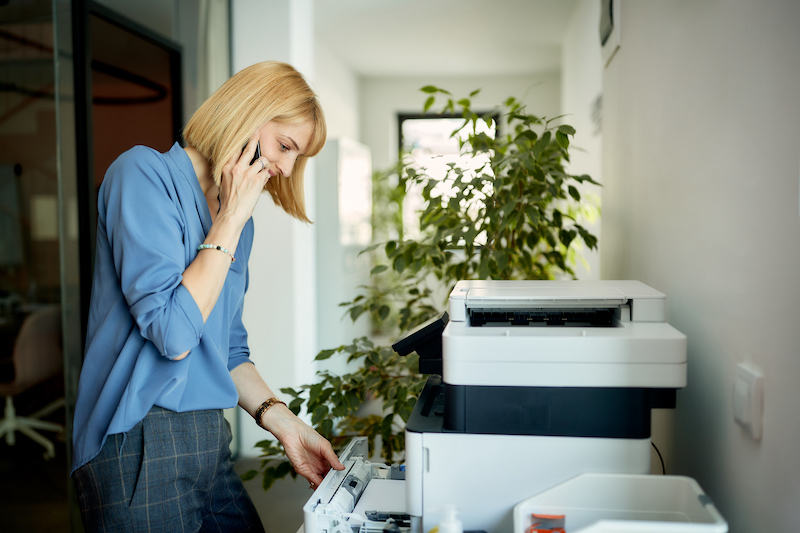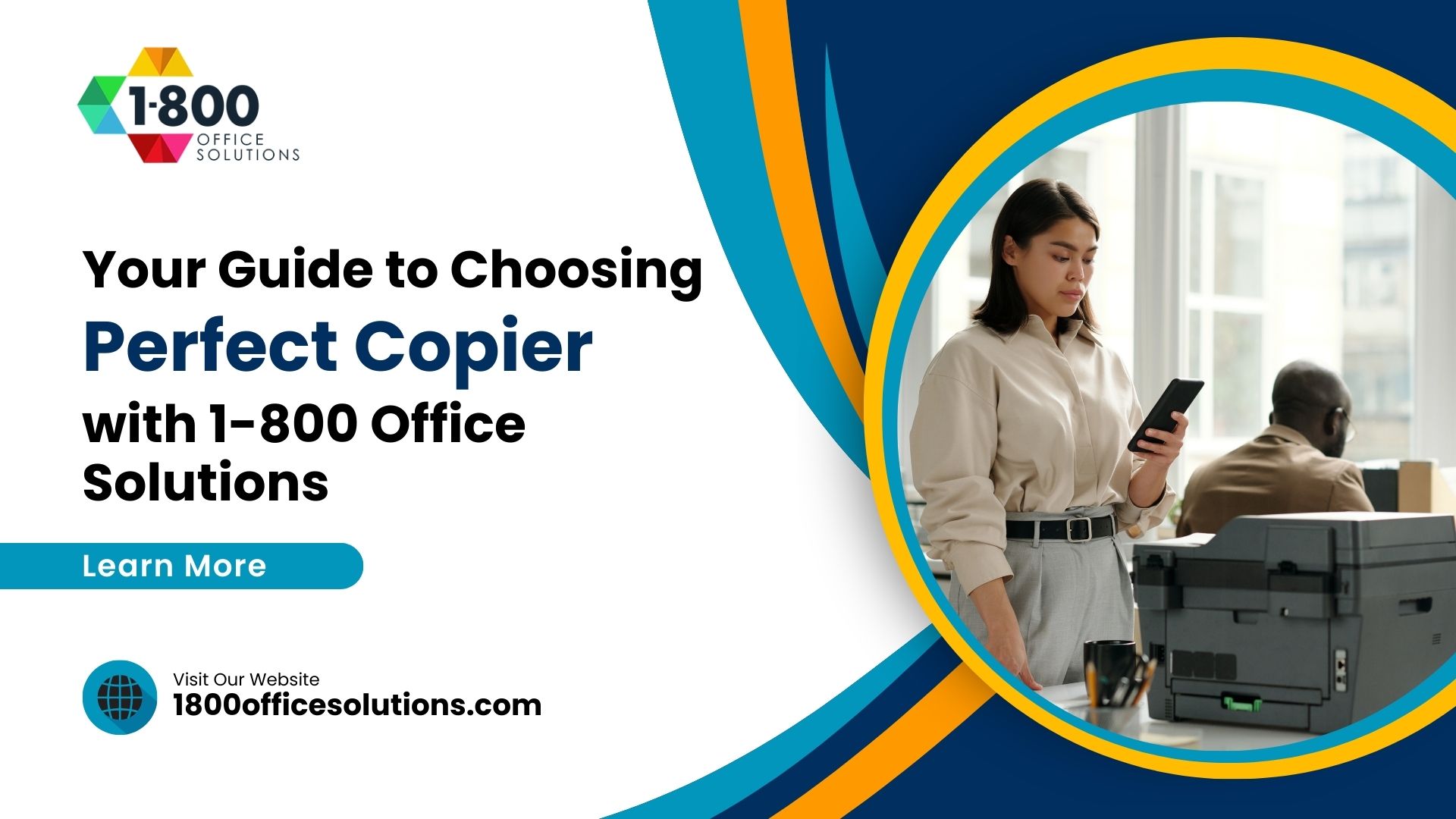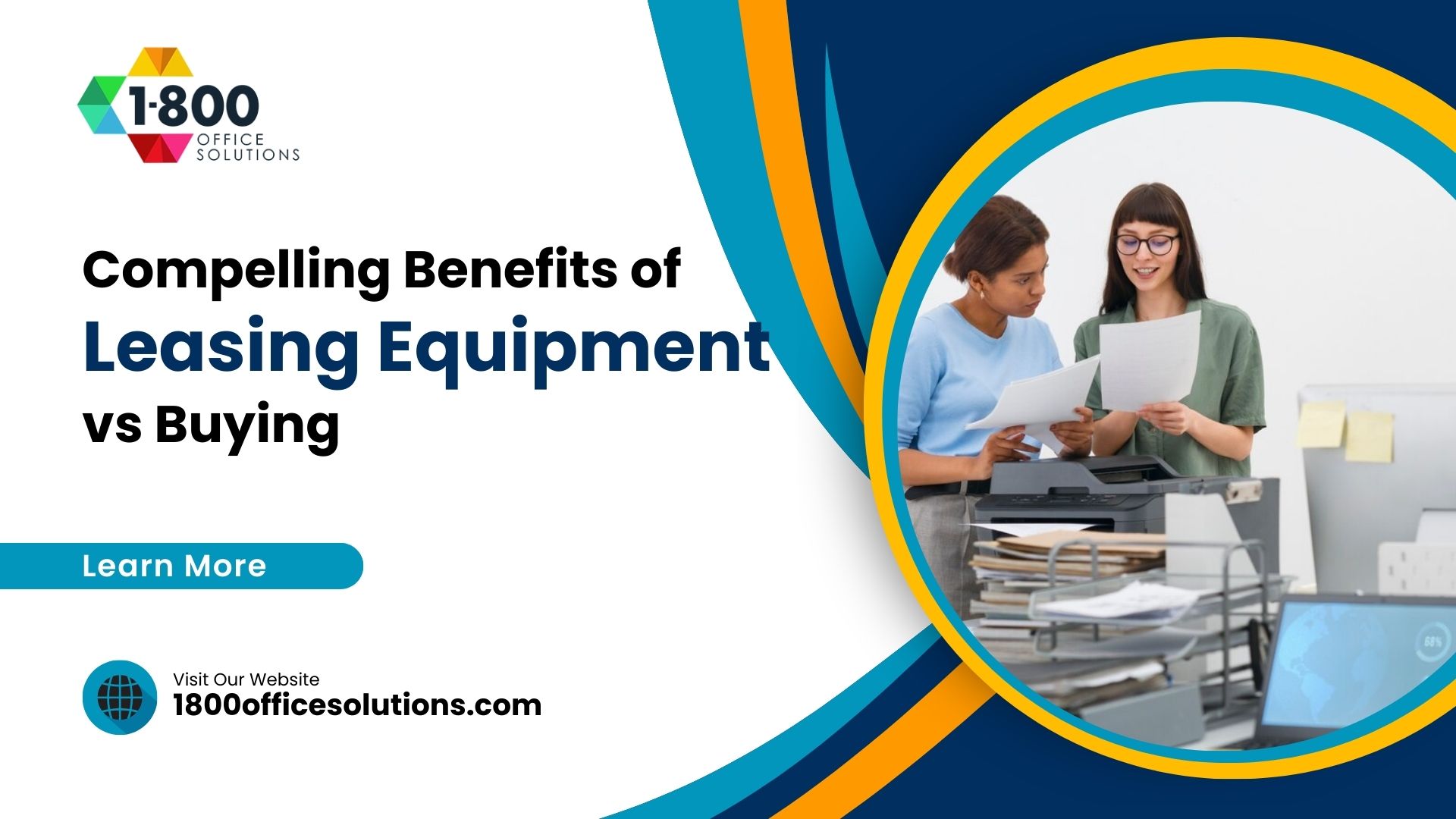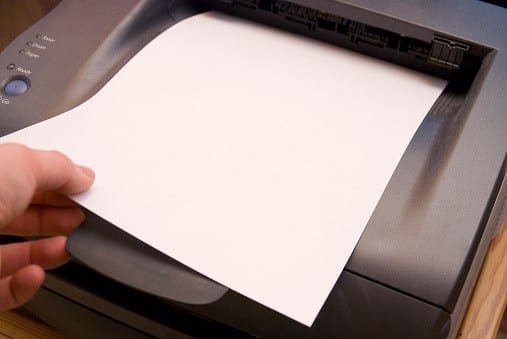The Secret Sauce of Leasing Copier : How to Slash Costs and Boost Efficiency!
Introduction
In a succefull business efficiency and cost-effectiveness are the keys to success. One area where these principles are particularly relevant is in the management of office equipment, specifically copiers. A copier is an essential tool in any office, but owning one can be a significant expense.
This is where copier leasing comes into play. Leasing a copier, instead of buying, can provide businesses with a more flexible and cost-effective solution to meet their copying needs.
This article will delve into the concept of copier leasing, its benefits, and how it can save money for businesses.
What is Leasing Copier?
Copier leasing is a contractual agreement where a business rents a copier from a leasing company for a specified lease term. This arrangement allows the business to use the copier without the upfront cost of purchasing one outright.
The business makes regular lease payments over the term of the lease, which often includes service and maintenance coverage. At the end of the lease term, the business has the option to purchase the copier, return it, or upgrade to a newer model. This flexibility is one of the main advantages of copier leasing.
The Advantages of Copier Leasing
There are several key advantages to leasing a copier:
- Cost Efficiency: Leasing a copier eliminates the need for a large upfront investment. This can free up capital for other business needs. Additionally, lease payments are often tax-deductible as a business expense, further enhancing the cost-effectiveness of copier leasing.
- Streamlining Office Operations: Leasing a copier often includes a service agreement that covers maintenance and repairs. This means less downtime and more efficient operations. Plus, businesses can upgrade to newer models with more features and better efficiency, keeping them at the forefront of technology.
- Maintenance Coverage: A key benefit of a copier lease is that it typically includes comprehensive maintenance coverage. This means that any issues with the copier, from paper jams to more serious mechanical failures, are handled by the leasing company. This not only saves money on repair costs but also ensures that the copier is always in good working order.
How Copier Leasing Can Save Money
Leasing a copier can result in significant cost savings for businesses. First, there’s the avoidance of the large upfront cost of purchasing a copier. This can be particularly beneficial for small businesses or startups with limited capital. Second, the inclusion of maintenance and service in the lease agreement can save businesses the cost of repairs or servicing.
Finally, leasing allows businesses to keep up with technology advancements. As newer, more efficient models become available, businesses can upgrade without having to sell or dispose of an old copier.
The Pros and Cons of Buying vs Leasing a Copier
When it comes to acquiring a right copy machine, businesses have two main options: buying or leasing. Each option has its pros and cons.
Buying a Copier
Pros:
- Ownership: When you buy a copier, you own it. This means you can do what you want with it, including selling it when you’re ready to upgrade.
- No ongoing payments: Once you’ve paid for the copier, it’s yours. There are no ongoing lease payments to worry about.
Cons:
- Upfront cost: Buying a copier requires a significant upfront investment.
- Maintenance and repair costs: When you own a copier, you’re responsible for all maintenance and repair costs.
- Obsolescence: Technology advances quickly. The copier you buy today may be outdated in a few years.
Leasing a Copier
Pros:
- No large upfront cost: Leasing a copier requires little to no upfront cost.
- Maintenance and service included: Most copier leases include a service agreement that covers maintenance and repairs.
- Easy to upgrade: Leasing makes it easy to upgrade to a newer model when your lease term ends.
Cons:
- Ongoing payments: When you lease a copier, you’ll have ongoing lease payments for the duration of the lease term.
- You don’t own the copier: At the end of the lease, unless you choose to buy the copier, you’ll need to return it to the leasing company.
Whether to buy or lease a copier depends on your business’s specific needs and circumstances. However, for many businesses, the flexibility, cost-efficiency, and convenience of copier leasing make it an attractive option.
Maximizing Efficiency and Reducing Costs in Copier Leasing
Understanding Your Copier Lease
A copier lease is a contractual agreement that allows your business to use a copier without the need for an upfront purchase. It’s essential to understand the terms and conditions of your lease agreement to maximize its benefits. The lease agreement will detail the lease period, the monthly payment, and the responsibilities of both parties.
It will also specify what happens at the end of the lease. Understanding these terms can help you avoid unexpected costs and ensure that the lease meets your business needs.
Key Things to Look For in a Copier Lease
When entering a copier lease, there are several key things to look for:
- Cost: Understand the total cost of the copier over the term of the lease. This includes the monthly lease payments and any additional costs such as maintenance or overage charges.
- Lease Term: The length of the lease can impact the monthly cost. A longer lease may have lower monthly payments, but you’ll be committed for a longer period.
- Service Agreement: Most copier leases include a service agreement that covers maintenance and repairs. Make sure you understand what is covered and what is not.
- Upgrade Options: Some leases allow you to upgrade to a new copier during the lease term. This can be beneficial if your copying needs change or if you want to take advantage of new technology.
How to Avoid Common Pitfalls in Copier Leasing
While copier leasing can offer many benefits, there are also potential pitfalls to avoid:
- Overcommitting: Don’t commit to more copier than you need. Consider your copying needs carefully and choose a copier that meets those needs without excessive features or capacity.
- Ignoring the Fine Print: Be sure to read and understand all the terms and conditions of the lease agreement. This can help you avoid unexpected costs or unfavorable lease terms.
- Neglecting End-of-Lease Terms: Understand what happens at the end of your lease. Will you have the option to buy the copier, return it, or upgrade to a new model? Make sure these terms align with your business plans. How Copier Leasing Can Help Streamline Your Office
Critical Steps to Take Toward the End of Your Copier Lease Agreement
As the end of your copier lease approaches, there are several critical steps to take:
- Review Your Lease Agreement: Revisit your lease agreement to understand your end-of-lease options and responsibilities.
- Evaluate Your Needs: Consider whether your current copier still meets your business needs. If not, it may be time to upgrade.
- Contact Your Leasing Company: Reach out to your leasing company to discuss end-of-lease procedures and any potential new lease agreements.
The Secret Sauce of Copier Leasing
The secret sauce of copier leasing lies in its flexibility, cost-efficiency, and access to the latest technology. By understanding your copier lease, looking for key features in the lease agreement, avoiding common pitfalls, and taking critical steps at the end of your lease, you can maximize the benefits of copier leasing.
This can help you slash costs and boost efficiency in your business, making copier leasing a smart choice for many companies. Whether you’re a small startup or a large corporation, copier leasing can provide a solution that meets your business needs and supports your success.
What People Also Ask
What is included in a service agreement for a copier lease?
A service agreement for a copier lease typically includes comprehensive maintenance coverage. This means that any issues with the copier, from paper jams to more serious mechanical failures, are handled by the leasing company. This not only saves money on repair costs but also ensures that the copier is always in good working order.
What are the common pitfalls to avoid in copier leasing?
Common pitfalls to avoid in copier leasing include overcommitting to more copier than you need, ignoring the fine print in the lease agreement, and neglecting end-of-lease terms.
How can copier leasing help streamline office operations?
Copier leasing can help streamline office operations by ensuring less downtime and more efficient operations. The inclusion of a service agreement in the lease means that any issues with the copier are handled by the leasing company, saving time and resources for the business.
How much does it cost to lease a copier?
The cost of leasing a copier can vary depending on the model of the copier, the length of the lease term, and the inclusion of additional services such as maintenance and repairs.
What is the difference between leasing and renting a copier?
Leasing and renting a copier are similar in that they both allow a business to use a copier without purchasing it outright. However, leasing typically involves a longer-term agreement and often includes the option to purchase the copier at the end of the lease term.
Conclusion
For office equipment, the decision to buy or lease can significantly impact a company’s operations, cash flow, and overall efficiency. The secret sauce of copier leasing lies in its ability to provide businesses with access to the latest technology, such as multifunction copiers and printers, without the upfront cost and commitment of purchasing.
Leasing a copier or printer allows businesses to keep pace with technological advancements, ensuring they always have a new copier that meets their business needs. Whether it’s a Canon imageRUNNER, Xerox VersaLink, or Xerox AltaLink, leasing companies offer a range of options to suit different printing volumes, speeds (pages per minute), toner, and functionalities.
The lease period, often up to 60 months, provides flexibility and the opportunity to upgrade or change equipment as needs evolve. This is particularly beneficial for small and medium-sized businesses that may have fluctuating requirements.
However, it’s crucial to understand the lease terms and conditions, including the copier lease rates and what happens at the end of your lease. Businesses should also consider the total cost over time and compare it with the cost of buying a copier. In some cases, buying printers and copiers may be a better option, particularly if the equipment will be used for a long period.
In conclusion, the secret sauce of copier leasing is its ability to provide cost-effective, flexible access to the latest office copiers and printers. By understanding the nuances of leasing vs buying, businesses can make informed decisions that slash costs and boost efficiency, ensuring they always get the best deal for their copying and printing needs.












